第1章
The greater part of mankind may be divided into two classes;that of shallow thinkers, who fall short of the truth; and that of abstruse thinkers, who go beyond it. The latter class are by far the most rare: and I may add, by far the most useful and valuable. They suggest hints, at least, and start difficulties, which they want, perhaps, skill to pursue; but which may produce fine discoveries, when handled by men who have a more just way of thinking. At worst, what they say is uncommon; and if it should cost some pains to comprehend it, one has, however, the pleasure of hearing something that is new. An author is little to be valued, who tells us nothing but what we can learn from every coffee-house conversation.
All people of shallow thought are apt to decry even those of solid understanding, as abstruse thinkers, and metaphysicians, and refiners; and never will allow any thing to be just which is beyond their own weak conceptions. There are some cases, I own, where an extraordinary refinement affords a strong presumption of falsehood, and where no reasoning is to be trusted but what is natural and easy. When a man deliberates concerning his conduct in any particular affair, and forms schemes in politics, trade, oeconomy, or any business in life, he never ought to draw his arguments too fine, or connect too long a chain of consequences together. Something is sure to happen, that will disconcert his reasoning, and produce an event different from what he expected.
But when we reason upon general subjects, one may justly affirm, that our speculations can scarcely ever be too fine, provided they be just; and that the difference between a common man and a man of genius is chiefly seen in the shallowness or depth of the principles upon which they proceed. General reasonings seem intricate, merely because they are general; nor is it easy for the bulk of mankind to distinguish, in a great number of particulars, that common circumstance in which they all agree, or to extract it, pure and unmixed, from the other superfluous circumstances. Every judgment or conclusion, with them, is particular. They cannot enlarge their view to those universal propositions, which comprehend under them an infinite number of individuals, and include a whole science in a single theorem.
Their eye is confounded with such an extensive prospect; and the conclusions, derived from it, even though clearly expressed, seem intricate and obscure. But however intricate they may seem, it is certain, that general principles, if just and sound, must always prevail in the general course of things, though they may fail in particular cases; and it is the chief business of philosophers to regard the general course of things. I may add, that it is also the chief business of politicians; especially in the domestic government of the state, where the public good, which is, or ought to be their object, depends on the concurrence of a multitude of causes; not, as in foreign politics, on accidents and chances, and the caprices of a few persons. This therefore makes the difference between particular deliberations and general reasonings, and renders subtilty and refinement much more suitable to the latter than to the former.
I thought this introduction necessary before the following discourses on commerce, money, interest, balance of trade, &c.
where, perhaps, there will occur some principles which are uncommon, and which may seem too refined and subtile for such vulgar subjects. If false, let them be rejected: But no one ought to entertain a prejudice against them, merely because they are out of the common road.
The greatness of a state, and the happiness of its subjects, how independent soever they may be supposed in some respects, are commonly allowed to be inseparable with regard to commerce; and as private men receive greater security, in the possession of their trade and riches, from the power of the public, so the public becomes powerful in proportion to the opulence and extensive commerce of private men. This maxim is true in general;though I cannot forbear thinking, that it may possibly admit of exceptions, and that we often establish it with too little reserve and limitation. There may be some circumstances, where the commerce and riches and luxury of individuals, instead of adding strength to the public, will serve only to thin its armies, and diminish its authority among the neighbouring nations. Man is a very variable being, and susceptible of many different opinions, principles, and rules of conduct. What may be true, while he adheres to one way of thinking, will be found false, when he has embraced an opposite set of manners and opinions.
The bulk of every state may be divided into husbandmen and manufacturers. The former are employed in the culture of the land; the latter work up the materials furnished by the former, into all the commodities which are necessary or ornamental to human life. As soon as men quit their savage state, where they live chiefly by hunting and fishing, they must fall into these two classes; though the arts of agriculture employ at first the most numerous part of the society. Time and experience improve so much these arts, that the land may easily maintain a much greater number of men, than those who are immediately employed in its culture, or who furnish the more necessary manufactures to such as are so employed.